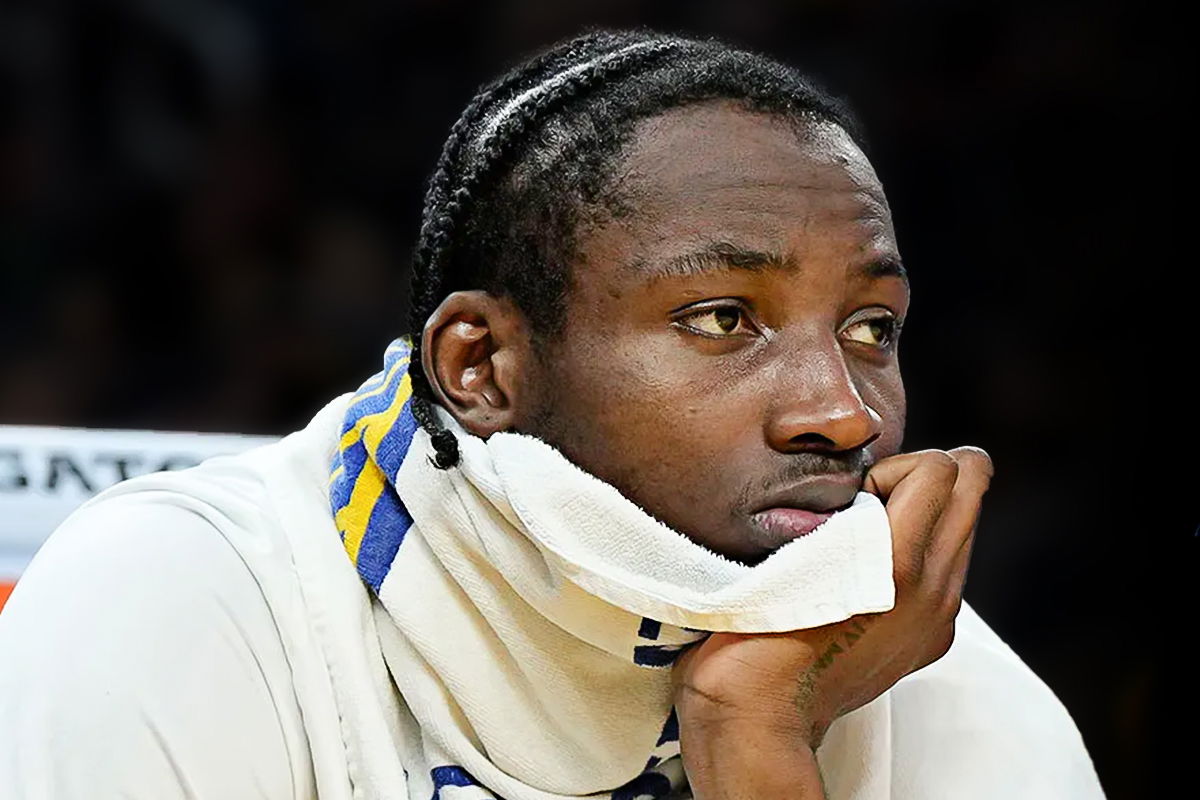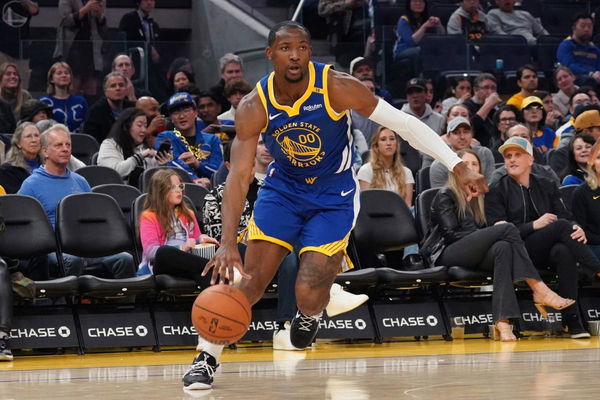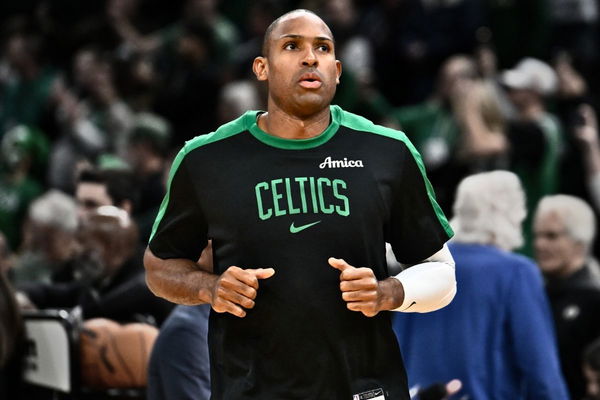



The frustration had been simmering all season. There were the inconsistent minutes, the tensions with coach Steve Kerr, and the feeling of being a future star stuck in a win-now world. So when Jonathan Kuminga hit restricted free agency, he made a bold declaration: he was betting on himself. He turned down a reported two-year, $45 million offer from the Golden State Warriors, signaling to the league that he wanted a bigger role, a bigger contract, and the kind of respect he felt he hadn’t received.
Watch What’s Trending Now!
But in the cold, hard reality of the NBA offseason, that bet hasn’t paid off. The market for a young, athletic forward like Kuminga has been surprisingly soft, and the Warriors, holding all the cards, have been in no rush to meet his demands. The result is a tense, high-stakes standoff that has become the focal point of the Warriors’ offseason.
Kuminga has lost his leverage, and he now finds himself at a crossroads. He’s facing a series of potential paths that will not only define the next chapter of his career but could also have massive ripple effects on the future of the Golden State Warriors. Here’s a look at his options and what each one could mean.
1. The fresh start via sign-and-trade
The most straightforward path for Kuminga to get what he wants: a sign-and-trade. And there are teams interested. According to reports, both the Sacramento Kings and Phoenix Suns have made aggressive moves, with proposals worth up to $90 million over four years. For Kuminga, who feels he’s been “strung along for four seasons” by the Warriors, these offers are everything he’s been looking for.
After a season where he averaged a promising 15.3 points and 4.6 rebounds but saw his role diminish after the Jimmy Butler trade, a long-term deal with a promised starting role is a clear signal that a team is ready to take a bet on him as a cornerstone. As Kuminga told The Athletic, “I want to see what I can do. I know I have it in me. I want to find out. I’ve never had that chance.”
That desire for control is a major sticking point. The offers from the Kings and the Suns reportedly include a player option, giving Kuminga future flexibility—a crucial detail after the Warriors insisted on a team option in their own offer, which would have ceded all control to the franchise. The Kings, in particular, have emerged as his preferred destination. The interesting part here is that this team is reportedly willing to make him a franchise centerpiece, and according to insider Allen Stiles, they also have a “handshake agreement” to trade DeMar DeRozan to make room for Kuminga.

Imago
Jan 4, 2025; San Francisco, California, USA; Golden State Warriors forward Jonathan Kuminga (00) drives to the basket against the Memphis Grizzlies in the second quarter at Chase Center. Mandatory Credit: David Gonzales-Imagn Images
So what’s the holdup? The Warriors. Golden State’s front office is reportedly holding out for a massive return. While the Kings have offered a package including a protected first-round pick and a rotation player like Devin Carter, the Warriors are demanding an unprotected pick and a more valuable young player like Keegan Murray or Keon Ellis. It’s a steep price that no team has been willing to meet, leaving the entire situation in a frustrating deadlock.
If a deal gets done, the implications are massive for everyone involved. For Kuminga, it’s the ultimate victory in his bet on himself. He gets the financial security, the fresh start, and most importantly, the control he’s been fighting for. As ESPN’s Shams Charania and Anthony Slater reported, the longer-term offers from the Kings and Suns signify “a larger guaranteed role, a promised starting position and a greater level of respect and career control.” For the Warriors, however, it’s a painful concession.
They would be forced to sell low on a former top-10 pick, recouping some assets but weakening their young core and effectively ending their “two-timeline” plan. It would be a clear and final signal that their “win-now” agenda with Stephen Curry is the only thing that matters. And for a team like the Kings, it would trigger an immediate chain reaction, especially for players like DeRozan.
2. The reluctant return on a short-term deal
What if the market never materializes and Jonathan Kuminga is forced to reconsider the Warriors’ offer? Golden State’s current best offer is a two-year, $45 million contract, but it comes with a major catch: a team option on the second year and no no-trade clause. It’s a deal that Kuminga’s camp has already rejected.
The reason for the rejection is simple: control. As ESPN’s Anthony Slater reported, “Kuminga’s decision is due in large part to the Warriors’ insistence on having a team option for the second season and their unwillingness to let him maintain the built-in no-trade clause.” For a young player who has already been vocal about his desire for a bigger, more consistent role, signing a deal that gives the team all the power feels like career suicide. As one CBS Sports analysis put it, “There would be literally no upside for Kuminga in that framework.”
If Kuminga were to accept this deal, it would be a reluctant truce, not a happy reunion. Why? Because he would have no power. As the CBS analysis explained, “He wouldn’t be able to play his way into a bigger deal next summer with the Warriors holding a team option. On top of that, waiving his ability to decline a trade would take away his ability to steer himself into the kind of situation he prefers, where he could start and have a larger role.”
For the Warriors, it would provide short-term stability and maintain his value as a future trade asset. They want a short deal so they can move on quickly if Kuminga underperforms. Insiders note the Warriors believe they have the best financial offer on the table, but the structure is designed to protect the team, not empower the player.
If he were to accept this deal (highly unlikely…bordering impossible), it would likely create a tense and toxic locker room dynamic. How do you motivate a player who feels disrespected and is just waiting for the next trade deadline? For Kuminga, it would mean sacrificing the long-term security and control he’s been fighting for, all while playing under the microscope of a front office that has already shown its hand.
3. The nuclear option—the qualifying offer
There is a third, far more dramatic path for Jonathan Kuminga: accepting the one-year, $7.9 million qualifying offer. It’s a move so rare and risky that it’s often seen as the “nuclear option” in restricted free agency, a final, bold declaration in his bet on himself.
So what would this mean? By signing the qualifying offer, Kuminga would play out the 2025-26 season on a small, one-year deal. The biggest advantage for him is that it comes with an “implied no-trade clause,” meaning the Warriors won’t be able to trade him without his consent. Then, in the summer of 2026, he would become an unrestricted free agent, free to sign with any team he chooses, without any hurdles.
As Shams Charania reported, “He would be declining nearly $14 million extra next season but would give himself an implied no-trade clause and a shot at unrestricted free agency next summer at 23 years old.” It’s the ultimate lose now, win later play. He would be giving up a massive amount of guaranteed money in the short term for the chance at total freedom in the long term. It’s a path few players take, with Ben Gordon’s successful gamble in 2008 being the rare exception. More often, it’s a cautionary tale, like Nerlens Noel, who suffered an injury that cost him millions.
This is the nightmare scenario for the Warriors. As one rival executive told The Athletic, “If he takes the qualifying offer, the Warriors are in a tough spot from a team-building perspective because they need to secure him on a deal that allows for trade.” They would lose all leverage and risk losing a former top-10 pick for nothing next summer. For Jonathan Kuminga, it’s the ultimate gamble. If he has a great, healthy season, he could cash in big time in 2026. But if he gets injured or his production dips, he could lose tens of millions of dollars. It’s a high-stakes game of chicken, and the entire league is watching to see who blinks first.
4. The surprise compromise
Is there a world where both sides find a way to meet in the middle? It seems unlikely, but a last-minute breakthrough is always possible. This scenario would see the Warriors and Kuminga agree to a new, mutually satisfying deal—perhaps something closer to his desired three-year, $82 million framework, with some of the contract protections he’s been fighting for.
As it stands, the two sides are reportedly “nowhere near common ground.” The Warriors’ insistence on a team option and their refusal to include a no-trade clause has been a non-starter for Kuminga’s camp. But there’s an external pressure point that could force the Warriors’ hand: Al Horford.
The veteran big man is reportedly “destined” to join the Warriors, but has yet to put pen to paper. The primary reason for this holdup? The Kuminga situation. As ESPN’s Marc J. Spears reported, Horford is in “no hurry” and is even contemplating retirement. The longer the Jonathan Kuminga saga drags on, the greater the risk that Horford gets tired of waiting and either retires or signs with another team.

Imago
Nov 24, 2024; Boston, Massachusetts, USA; Boston Celtics center Al Horford (42) is introduced before a game against the Minnesota Timberwolves at TD Garden. Mandatory Credit: Eric Canha-Imagn Images
If a compromise is reached, it would be a huge win for both sides. It would restore at least temporary harmony, stabilize the roster, and allow the Warriors to finally sign Horford and complete their offseason. But if the standoff continues, it could have disastrous consequences. The Warriors could lose out on their top free-agent target and be left with a disgruntled young player, a situation that would only add to the growing sense of uncertainty in the Bay.
No matter which path he chooses, Jonathan Kuminga has made one thing abundantly clear throughout this entire process: he is not afraid of the risk. His entire offseason has been a high-stakes gamble, a bet on his own talent and potential. It’s a mindset that he summed up perfectly in a simple, defiant statement: “I’ll bet on myself all day.”

